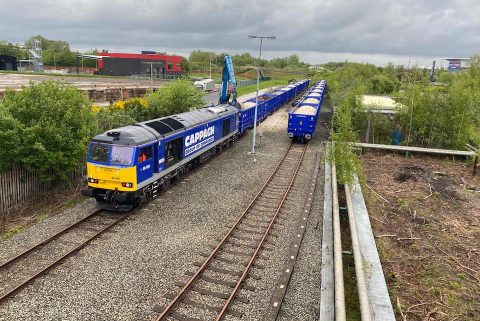Ukrainian farmers: winning elections not the same as winning a war

Today at midnight, Poland will once again open up its borders for the transportation of agricultural exports from Ukraine. The destination may not be Poland, the railway routes are only available for transit services. It is the latest update in a series of bans and restrictions of eastern european countries on agricultural produce from Ukraine. The topic became the center point of the discussion yesterday at the RailFreight Summit Poland, held in Warsaw.
Do you want to read the full article?
Thank you for visiting RailFreight.com. Become a member of RailFreight Premium and get full access to all our premium content.
Are you already a member?
Having problems logging in? Call +31(0)10 280 1000 or send an email to customerdesk@promedia.nl.





